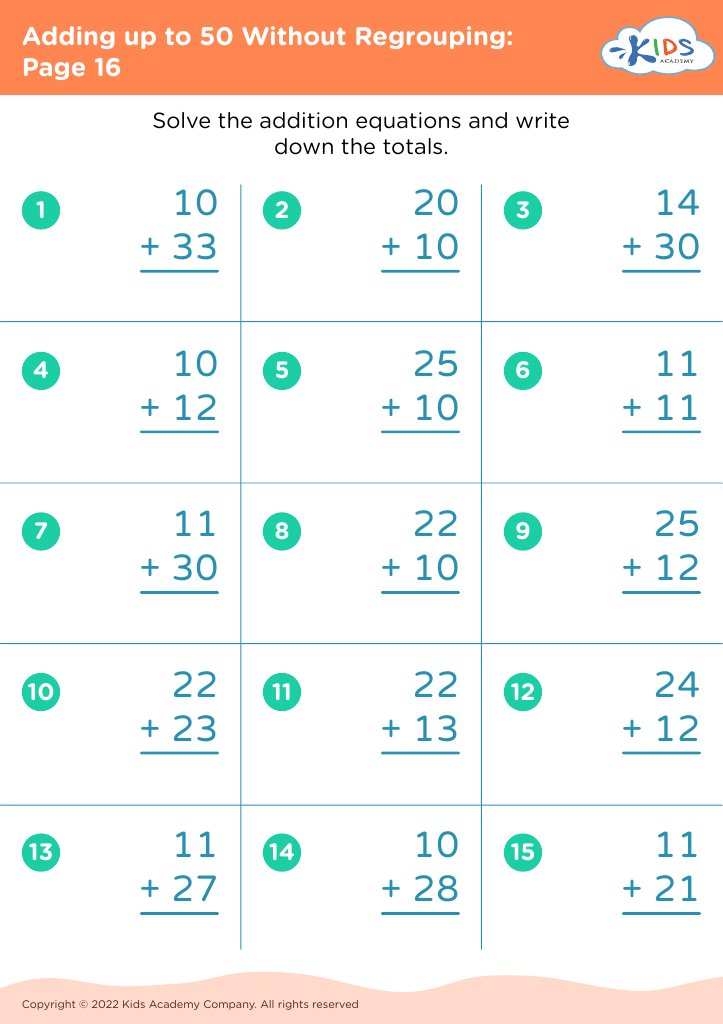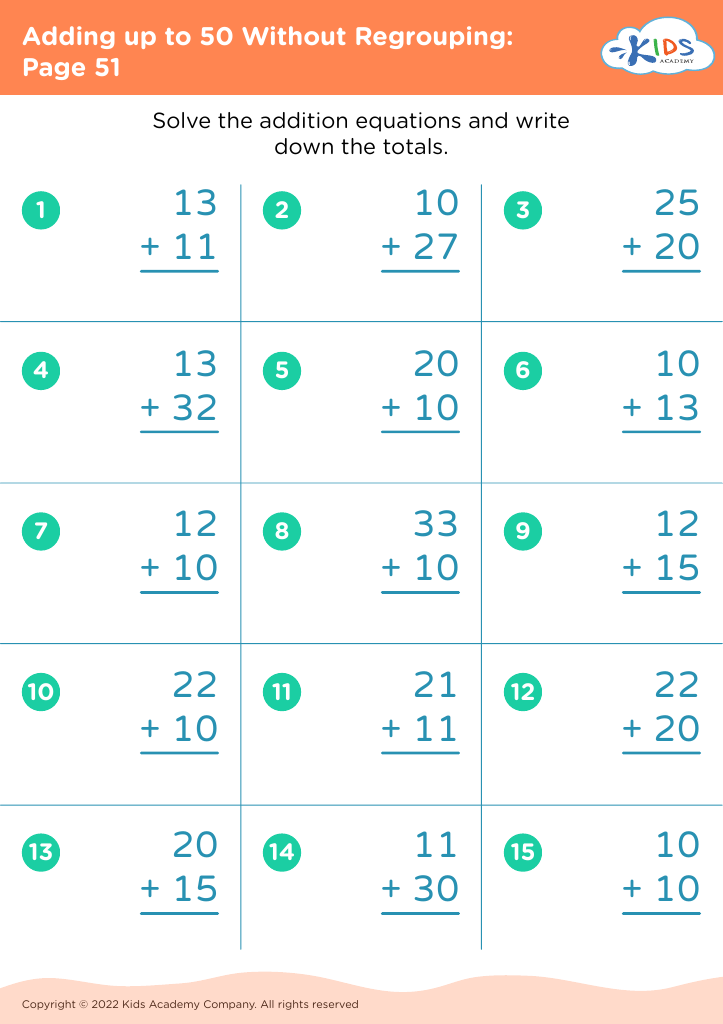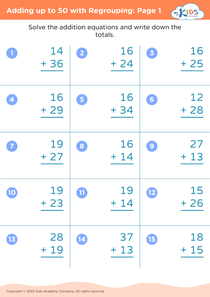Basic Math Skills Adding up to 50 Without Regrouping Worksheets for Ages 5-8
6 filtered results
-
From - To
Unlock your child’s potential with our "Basic Math Skills Adding Up to 50 Without Regrouping Worksheets," designed specifically for ages 5-8. These engaging worksheets focus on mastering the foundational concept of addition, allowing young learners to confidently add numbers up to 50 without the complexity of regrouping. Ideal for enhancing arithmetic skills, our resources feature bright, interactive visuals that make learning fun! Each worksheet reinforces critical thinking and problem-solving skills, ensuring your child gains confidence in their math abilities. Perfect for home or classroom use, these worksheets are a fantastic tool to cultivate early numeracy skills while keeping students motivated and eager to learn!
Basic math skills, especially the ability to add up to 50 without regrouping, are crucial for children aged 5-8. Mastery of these skills forms the foundation for more complex mathematical concepts they will encounter later in their education. When children can comfortably and confidently create sums up to 50, they develop number sense, which is essential for problem-solving and logical thinking.
Strengthening basic math skills also enhances children's confidence and enjoyment of learning. When parents and teachers take an active interest in developing these abilities, they pave the way for positive attitudes toward mathematics in general. Successful early experiences with math can diminish anxiety in later academic pursuits.
Furthermore, these skills are not just academic; they carry practical applications in daily life, from managing allowances to helping with cooking measurements. Additionally, the collaborative practice of basic math—with parents, peers, or teachers—fosters social interactions and communication skills.
By prioritizing these foundational math skills, adults contribute significantly to a child's overall cognitive development and prepare them for academic success, empowering them for challenges ahead in both math and life.




















